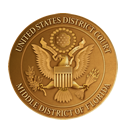
Some criminal trials involve individuals accused of operating criminal organizations known as racketeering enterprises. The Outlaws Motorcycle Club, a nationwide organization with a number of Florida chapters, including one in Tampa and one in St. Petersburg, was alleged to be a racketeering enterprise. Membership in the Outlaws was limited to white males who owned and rode Harley Davidson Motorcycles.
Between 1981 and 2003, five significant criminal trials involving the Outlaws Motorcycle Club were conducted in the Tampa Courthouse. All of the indictments alleged violations of the federal racketeering laws and the trial evidence included testimony about prostitution, drugs, guns, extortion, and murder.
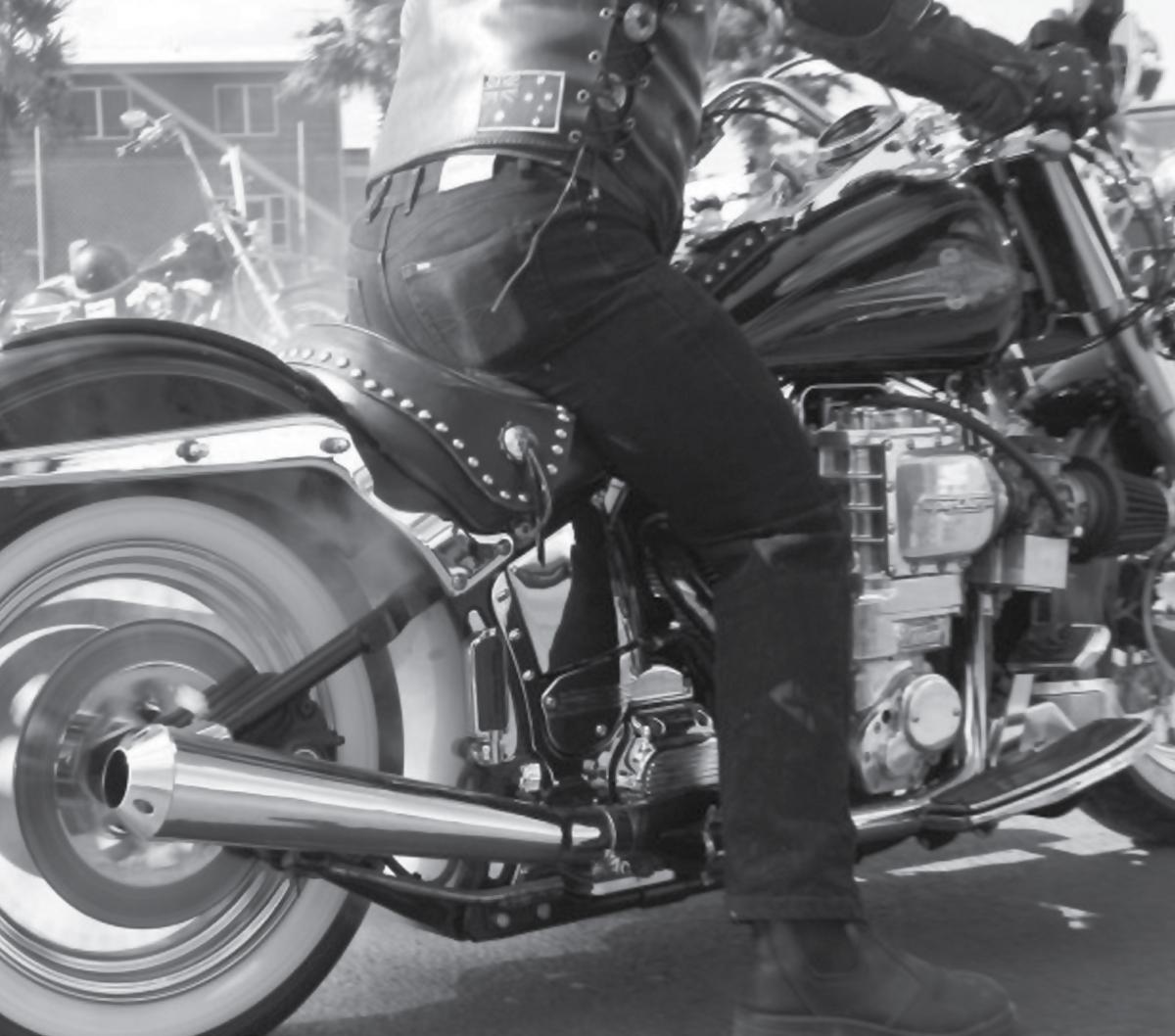
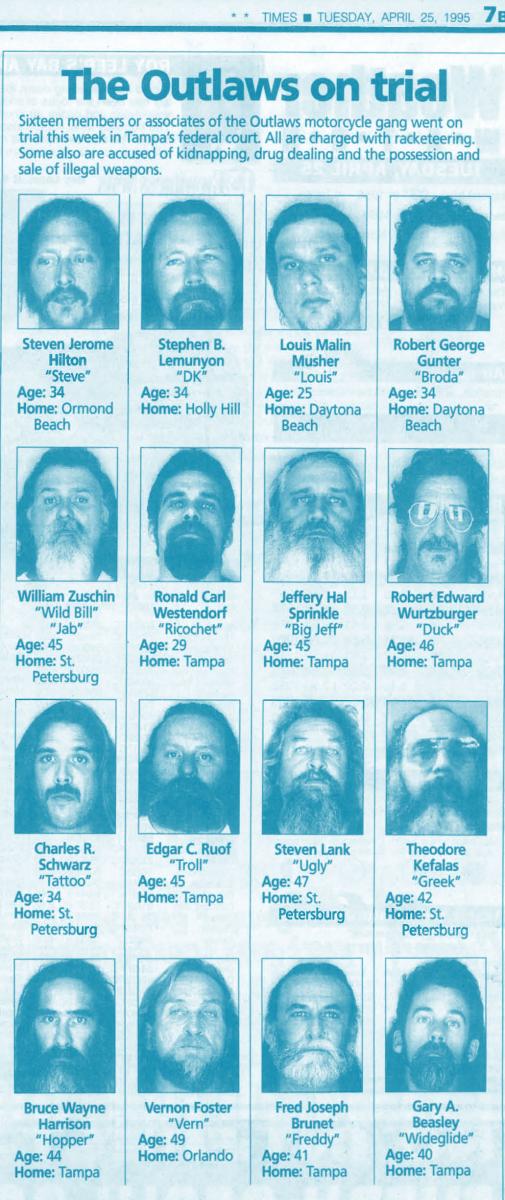
A Long, Hard Ride
The longest of the trials took place in the summer of 1995 and lasted four and a half months. This trial involved 22 members of the Tampa, St. Petersburg, and Daytona Beach Clubs. The 56-count indictment contained various allegations of drug crimes, gun violations, arson, robbery, extortion, kidnapping, and murder.

Hundreds of exhibits and dozens of witnesses helped prosecutors portray the Outlaws on trial as a violent, racist, misogynistic group engaged in the sale of guns, drugs, and stolen motorcycles. Some government witnesses in the trial testified only after being placed in the witness protection program.
The club's motto was "God forgives; Outlaws don’t."
Security was very high during the trial with United States Marshals brought in from all over the country. At least 16 marshals were in the courtroom at all times, and each of the doors was manned by additional marshals. One of the marshals in charge of security, Brenda Ferebee (right), is still assigned to the Tampa Courthouse.
Brenda Ferebee
Deputy United States Marshal
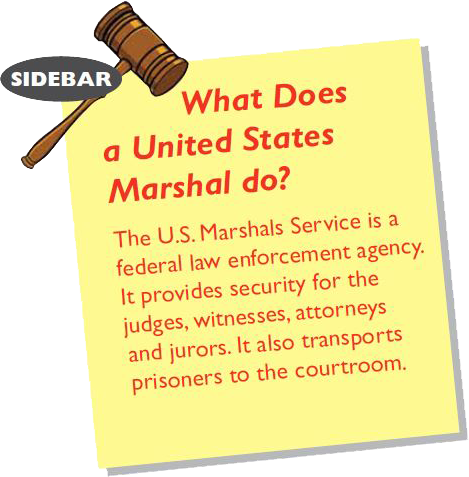
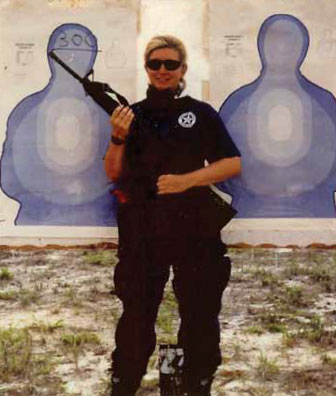
“In the summer of 1995, I was assigned as the deputy in charge of the 16 in-custody Outlaw Motorcycle Gang members on trial. As a second-generation deputy marshal with 10 years on the job, I was aware of the Outlaws’ reputation for violence and degradation of women and minorities. I was surprised I was given the assignment, in light of their reputation with regard to women. I had worked previously with Judge Bucklew on difficult trials and knew of her no-nonsense approach to handling defendants. With two women in charge of this trial, we were in for a bumpy ride.
We transported the Outlaws in a heavily armed motorcade, with assistance from the Tampa Police Department. I blocked off streets, placing heavily armed deputy marshals in strategic positions, including rooftops along the route of travel. I readied the courthouse for the worst, which required daily sweeps by the Tampa Police Department bomb squad. Deputy marshals came from around the country to assist with this trial.”
—Deputy United States Marshal Brenda Ferebee
WANTED
BY THE FBI
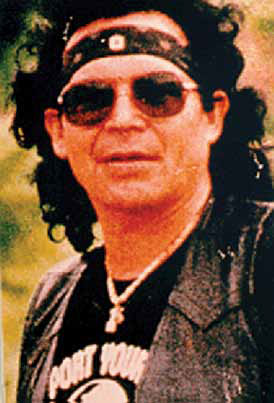
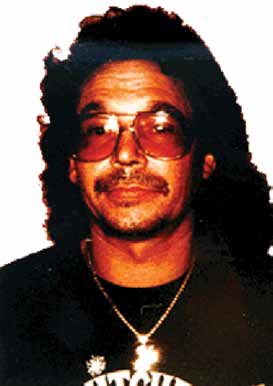
TEN MOST WANTED FUGITIVE
REWARD
$50,000
After more than one year on the FBI list, Bowman was arrested June 7, 1999, in Sterling Heights, Michigan.
The fourth trial, United States v. Bowman, took place in 2001. Harry “Taco’’ Bowman was the international president of the Outlaws Motorcycle Club. Through killings, bombings and intimidation, Bowman commanded his legions of bikers and lived by the credo, "snitches are a dying breed."
Bowman was tried on 10 counts of racketeering, stemming from what prosecutors described as his 20-year reign over the Outlaws. He was convicted of racketeering and conspiracy to commit murder and for crimes of involving drugs, guns, extortion, assault, and arson.
Bowman is in prison for life.
